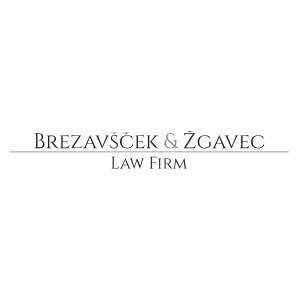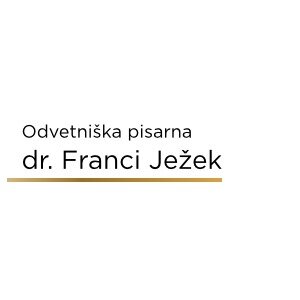Best Employer Lawyers in Slovenia
Share your needs with us, get contacted by law firms.
Free. Takes 2 min.
Or refine your search by selecting a city:
List of the best lawyers in Slovenia
About Employer Law in Slovenia
Employer law in Slovenia is designed to regulate the relationship between employers and employees. It covers a range of legal issues including employment contracts, working conditions, employee rights, and employer obligations. The legal framework ensures that both parties' rights are protected, promotes fair treatment in the workplace, and supports economic development by fostering a positive work environment.
Why You May Need a Lawyer
Legal assistance in the field of employer law may be necessary for various reasons. These include drafting or reviewing employment contracts, resolving workplace disputes, dealing with unfair dismissal claims, addressing discrimination or harassment cases, and ensuring compliance with local labor regulations. A lawyer can provide expert advice to navigate complex legal issues, represent your interests, and help you achieve favorable outcomes.
Local Laws Overview
The Labor Relations Act is the cornerstone of employment law in Slovenia. It outlines the rights and responsibilities of employers and employees, covering key areas such as minimum wage, working hours, health and safety standards, and termination procedures. Other relevant legislation includes the Employment and Insurance Against Unemployment Act, the Occupational Health and Safety Act, and various anti-discrimination laws. Employers must comply with these laws to avoid legal repercussions and maintain a fair workplace.
Frequently Asked Questions
What is the minimum employment age in Slovenia?
The minimum legal age for employment in Slovenia is 15 years. However, there are restrictions on the type of work that young workers can perform and the hours they can work.
What are the standard working hours in Slovenia?
The standard working week in Slovenia is 40 hours, typically spread over five days. Specific industries may have different regulations based on collective agreements.
Is there a legal requirement for paid annual leave?
Yes, employees in Slovenia are entitled to a minimum of four weeks of paid annual leave, which can increase with length of service or based on collective agreements.
Can an employment contract be terminated without cause?
No, employers must have a valid reason to terminate an employment contract, such as breach of contractual obligations or organizational changes that justify redundancy.
What is the notice period for terminating an employment contract?
The notice period varies depending on the length of service and reasons for termination. Usually, it ranges from 15 to 30 days, but it can be longer for employees with long service or special circumstances outlined in collective agreements.
Are non-compete clauses enforceable in Slovenia?
Non-compete clauses are enforceable in Slovenia, provided they are reasonable in scope, duration, and geographical area, and they serve a legitimate business interest.
What are the employer's obligations concerning health and safety?
Employers are required to provide a safe working environment, conduct risk assessments, and ensure that employees receive adequate training and protective equipment as necessary.
What protections exist against workplace discrimination?
Slovenian law prohibits discrimination based on gender, ethnicity, nationality, religion, disability, age, and sexual orientation. Violations can result in legal penalties for employers.
Are there any specific rules for part-time and fixed-term workers?
Yes, part-time and fixed-term workers are entitled to the same rights and protections as full-time workers, and should not be treated less favorably solely based on their employment status.
Can an employer modify terms of employment unilaterally?
No, any significant changes to employment terms must be agreed upon by both the employer and the employee. Unilateral modifications could result in legal challenges.
Additional Resources
For further assistance, consider reaching out to the following resources:
- Ministry of Labour, Family, Social Affairs and Equal Opportunities: They offer guidance on labor regulations and employee rights.
- Chamber of Commerce and Industry of Slovenia: Provides support and resources for employers regarding compliance with employment laws.
- Slovenian Employment Service: Offers resources for both employers and employees, including legal guidance and support services.
- Slovenian Pravno-informacijski center: Provides legal information and assistance on labor-related matters.
Next Steps
If you find yourself in need of legal assistance regarding employer-related issues in Slovenia, consider taking the following steps:
- Identify the specific issue or concern, and gather any relevant documents or evidence.
- Seek a consultation with a legal expert specializing in Slovenian employment law to discuss your situation.
- Determine your legal options and the best course of action with the help of your lawyer.
- Ensure that you maintain records of all communications and corresponding documentation throughout the legal process.
Having a knowledgeable legal partner can help you navigate the complexities of employer law and ensure that your rights and interests are protected.
Lawzana helps you find the best lawyers and law firms in Slovenia through a curated and pre-screened list of qualified legal professionals. Our platform offers rankings and detailed profiles of attorneys and law firms, allowing you to compare based on practice areas, including Employer, experience, and client feedback.
Each profile includes a description of the firm's areas of practice, client reviews, team members and partners, year of establishment, spoken languages, office locations, contact information, social media presence, and any published articles or resources. Most firms on our platform speak English and are experienced in both local and international legal matters.
Get a quote from top-rated law firms in Slovenia — quickly, securely, and without unnecessary hassle.
Disclaimer:
The information provided on this page is for general informational purposes only and does not constitute legal advice. While we strive to ensure the accuracy and relevance of the content, legal information may change over time, and interpretations of the law can vary. You should always consult with a qualified legal professional for advice specific to your situation.
We disclaim all liability for actions taken or not taken based on the content of this page. If you believe any information is incorrect or outdated, please contact us, and we will review and update it where appropriate.
Browse employer law firms by city in Slovenia
Refine your search by selecting a city.

















